#sisi 2009
Text
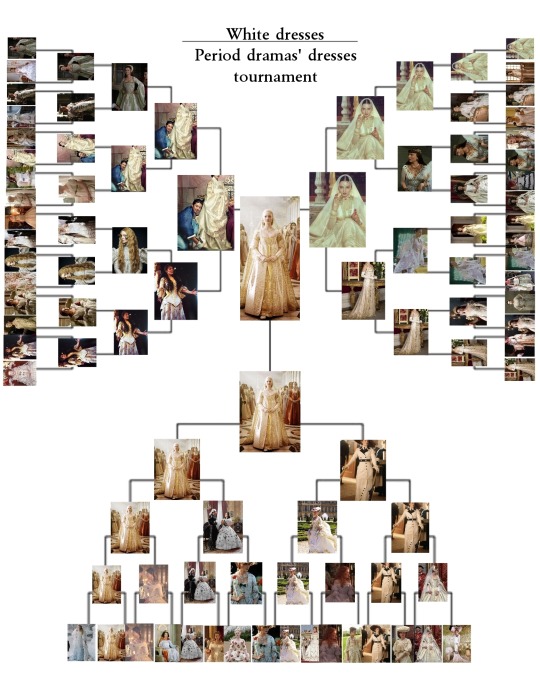
Period dramas' dresses tournament: White dresses
Round 1 Round 2 Round 3 Semifinals Finals
Winner: Lucrezia Borgia's dress, from The Borgias
Costume designer: Gabriella Pescucci
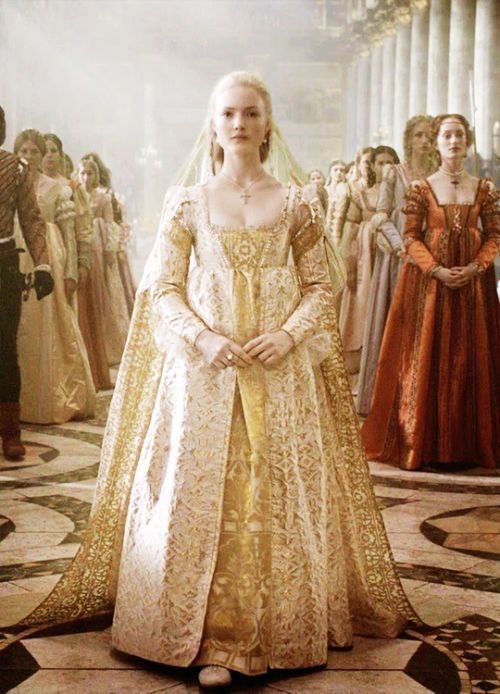
#Ik it's a mess but I'll make it work#period drama dresses tournament#tumblr tournament#sissi trilogy#sisi 2009#anne of the thousand days#the importance of being earnest#downton abbey#the spanish princess#the royal tailor#bridgerton#emma 2020#spencer#my fair lady#crimson peak#marie antoniette 2006#rosaline#the tudors#the phantom of the opera#elizabeth 1998#umrao jaan#magnificent century#the gilded age#troy 2004#the ten commandments#the serpent queen#empress ki#the great#merlin#the borgias
73 notes
·
View notes
Text


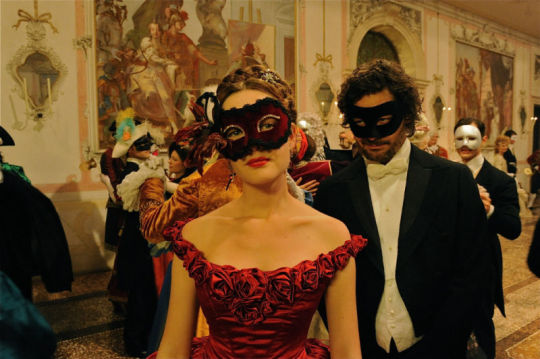
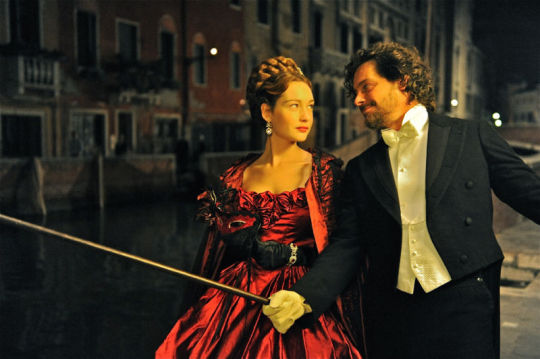
Kaiserin Elisabeth (Cristiana Capotondi) Red dress.. Sisi (2009).. Costume by Abdelfattah Qzaibar.
20 notes
·
View notes
Note
Hii, i saw your posts about sisi (2021) have you watched that or sisi (2009) i wanted to ask your opinion on something :)
Ask away, but sadly I haven't seen Sisi 2021, and as for Sisi 2009... I have seen it a long time ago and don't remember much about it. I planned to rewatch it, but somehow I never got to it? Maybe after I have my bachelor's thesis done (I say to fucking everything these days). Most of my information about them comes from @archduchessofnowhere
25 notes
·
View notes
Photo

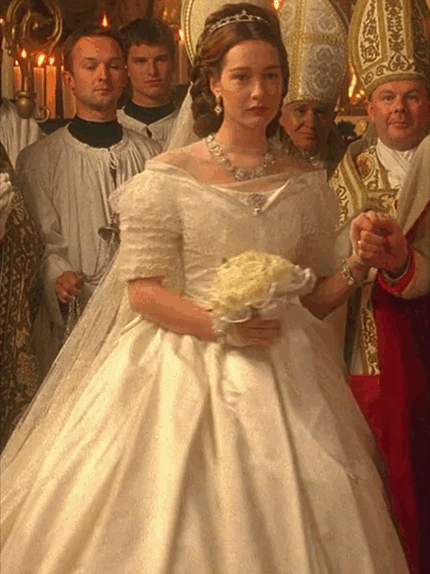


The wedding dress of Elisabeth “Sisi” in Bavaria in TV and Film
Romy Schneider in Sissi (1955)
Cristiana Capotondi in Sisi (2009)
Dominique Devenport in Sisi (2021)
Devrim Lingnau in The Empress (2022)
#Sissi#Sissi Trilogy#The Empress#Die Kaiserin#Sisi#The Empress (2022)#Sisi (2009)#Sisi (2021)#period drama#perioddramaedit#costume drama#historical drama#wedding dress#elisabeth in bavaria#elisabeth of austria#elisabeth of austria hungary
2K notes
·
View notes
Text
“I can bring her comfort and respond to her pain, which few can understand as I can”

Past May 29 was the 166th anniversary of the death of Archduchess Sophie, the eldest child of Emperor Franz Josef and Empress Elisabeth; and because of a turn of fate, the day before that was the 151th anniversary of the death Sophie’s namesake, her grandmother Archduchess Sophie, born a Princess of Bavaria.
In Elisabeth's biographies Baby Sophie's death tends to be portrayed as the first in what would be a long list of tragedies in the Empress' life. And yet many of them also pay little attention to it, dedicating it one or two paragraphs. But a piece of information they (almost) never fail to give in the few lines they use is this: that Archduchess Sophie actively blamed the infant’s death on her daughter-in-law, adding more pain to the already devastated young mother.
There are different variations in each biography, but the story goes as it follows: after the Hungarian tour was announced, Elisabeth had insisted in taking both of her daughters to the trip, which infuriated the Archduchess, since she thought the girls were to delicate to make the trip. A fight broke out. The court doctor decided that the archduchesses were in conditions to go to Hungary, so they went. But the girls fell ill soon after arriving, and eventually the eldest died. Archduchess Sophie thought that the child's death was Elisabeth's fault for taking her against her wishes, and told her so. This story is no more harshly portrayed than in the miniseries Sisi (2009), where Sophie tells “it’s your fault” to Elisabeth as she cries over her daughter's coffin.


This was what I read when I first learned about the little girl’s passing, and, as a newby, I didn’t question it. But as I continued to research Elisabeth and the Imperial family, I became interested in Sophie not as Sisi’s mother-in-law, but as an individual, and since then I started to grab this kind of statements with a grain of salt. Where does this come from, anyway? From someone’s correspondance? From a witness? Did this story originated around the time of the girl's death, or only later on?
Lately I finally got my hands on Unsere liebe Sisi, a collection of Sophie’s letters regarding her daughter-in-law. I read the chapter dedicated to Baby Sophie's death, and what I found in those letters was a far cry from what was depicted in Sisi (2009). So what was Archduchess Sophie's reaction to her granddaughter's death?
Before I beging sharing the letters, I must make the disclaimer that I don't know German and that I used a machine translation, so the nuances are lost. Also Sophie had the habit of abbreviating words, I could guess most of them with my very limited knowledge of German vocabulary but some I had no idea. So that affected the translation in some cases. Lastly, all the bolding in the letters is mine. That being said, let's beging.
First let's put the 1857 trip into context. This was a planned State visit, not a vacation. Relations with Hungary remained tense after the 1849 counter-revolution, so the goal of the tour was to try to reconcile the Hungarians with the still unpopular Emperor. Since the Italian tour of 1856 had gone relatively well, mainly do the young Empress' presence, they tried to replicate the effect in Hungary. They were set to depart on May 4 and stay until June 23. Everyday was packed with activities: meeting with dignitaries and Church representatives, attending to Mass, public parades, visits to every important city in Hungary, gala dinners, etc. The imperial couple's daughters were not meant to appear at any public event, they had been taken to be closer to their parents, but still they were to stay in Buda with their nannies for the entirety of the tour.
Although I'm yet to find a biography that cites a single source about the alleged fight between Elisabeth and her mother-in-law on whether taking the girls to Hungary or not, it could be possible, since Sophie doesn't sound terribly excited about the girls going. In a letter to her son Archduke Max dated May 7 she wrote of the enthusiasm which the imperial couple had been received. On the arrival of the little archduchesses to Hungary a day after their parents she says:
The children arrived on Tuesday at half past seven in the evening in bad weather, but were nevertheless received by a large crowd with stormy cheers; I only hope that they did not scream and cry in their terror…
Only a few days after the tour begun, Gisela fell ill with fever. At first it was thought that it was do to teething, but the next day Baby Sophie also fell ill. As the days passed Gisela got better, but her sister only got worse. When this happened Archduchess Sophie was in Saxony with her twin sister Queen Marie. Slowly, news on the girls’ health reached her. Again to Max she wrote on May 22:
Franzi writes me much and in detail about our poor little Sophie's unfortunately very serious illness, which, however, on the 19th, when he wrote to me, he did not yet seem to believe was dangerous.
(…) I immediately asked Franzi by telegraph for news of the evening, and when we returned yesterday from a beautiful promenade... I received a very reassuring telegraphic dispatch, which I read with fear and anxiety in the presence of good old Cuz.... [not identified], who had taken such deep pity on me and who had prayed so fervently with Aunt Marie and me for our poor baby during the afternoon service in the Chapel on the hill...
In this letter Sophie goes in detail on Baby Sophie’s agony and her parents desperation, but what I wanted to highlight was the ending, which shows how anguished the Archduchess was over her granddaughter’s condition.
Two days later Sophie improved and the parents were given the all-clear to continue their trip. Sophie informed her son Archduke Karl Ludwig on May 24:
... I am now doubly enjoying the pleasant life with good Aunt Marie, since the news from Ofen about our poor baby has been so reassuring. The poor parents were able to leave the children on Saturday with a lighter heart [in order to continue their journey through Hungary], but it takes me a lot to have to be separated from them now. By the way, Gisela has been well and fresh again for a long time
But sadly Baby Sophie's recovery was only momentary, and she died five days later. The whole family was heartbroken. Sophie's pain comes across her letters, but also her faith. She, like her son, tried to accept the child's death with Catholic resignation. She opens this letter from May 31 to her sister Ludovika, Elisabeth's mother, like this:
So we still had to give up our beloved child. She was to die in Hungary; that was God's will; we must hold fast to this faith so as not to perish in lamentation.
She describes Ludovika of the miserable state she found her son and his wife, then she tells her that:
In the short time during which God lent us the sweet child, she spread so much love, joy and happiness over all of us, as her small but already quite abundant powers made possible. There is one thought that is firmly in my mind, which I thought over and over again when I saw the great sacrifice that God demanded of our poor children coming ever closer, namely, thanks to God that you, my poor, much-tried Luise, did not know our dear baby in all her freshness of life, cheerfulness and such charming, loving kindness as I did, for this memory is now my greatest torment.
Sophie was no stranger to this kind of grief. She herself had once lost an infant daughter, Maria Anna, who died after a seizure aged only four-years-old. There is no doubt her little girl was on her mind, since she said it herself. To Karl Ludwig she wrote on June 6:
Sisi feels the need to speak of her beloved child, to surround herself with everything that reminds her of her child, so I can thank God that I can bring her comfort and respond to her pain, which few can understand as I can.
She also remembered her in a letter to Max dated June 4:
...The poor little girl still suffered a lot the last night, but when, thank God, her parents arrived on the 29th at half past ten in the morning, wonderfully fast from Debrecen, which they had left about noon the day before, she was already completely exhausted, but calm and remained conscious until 10 minutes before her death, which took place at half past ten in the evening. The agony began at 3 o'clock in the afternoon, but despite some involuntary cries - as with Anna - she does not seem to have suffered
It had been seventeen years since the little Archduchess Maria Anna passed away, but her memory was still present in her mother. Sophie truly understood better than anyone else the pain of loosing a young daughter to an illness, and had nothing but sympathy towards Elisabeth. To think that she, out of all people, would tell her daughter-in-law that her beloved child’s death was her fault seems almost vile to me after reading Sophie’s letters.
But, even if she didn’t say it to her face, did Sophie think Elisabeth somehow was to blame?
If she did, she never wrote it down. I'm sure that if a letter or diary entry from Sophie explicitly blaming Elisabeth existed, it would've been published in every single book about the empress in existence. But in her letters she only talks about the grief of the family and trusting God's will, though in this letter to Max there is an indication that she did thought Hungary had been the cause of the girl's illness:
It was as if the poor child clearly felt that the air in Hungary was not good for her, for even before and during her illness she often said 'Please go to Milan', where she was so well (...) Sisi and Franzi told me that the little one had been so beautiful in the last hour and after death, she also looked so friendly the other day [the day after her death], where the parents still saw her before and after mass before her departure. It hurt Sisi so much to have to leave her, she would have liked to come back with her, but she did not want to let the Emperor leave alone. It was also a heavy sacrifice for her to have to leave the dear poor child on the 23rd, when she was only apparently better, in order to continue the journey through Hungary. She only gave in to [Archduke] Albrecht's imploring plea, who was so keen to give the ever-loyal Jazyphians and Cumanians [?] the good fortune of being able to admire the Empress, who made such a favorable impression everywhere in Hungary as well as in Italy. Now it is so painful for the poorest woman to think that she was away from her beloved child for the last days of her life. I told her in consolation that God would certainly give her credit for the difficult sacrifice.
Not only seems that Elisabeth herself felt guilty about having been away from her child while she was ill, but Sophie actually tried to put her mind at ease, instead of making her feel even more guilty. Also in this letter a figure rather forgotten in the 1857 Hungarian tour emerges, and whom perhaps did had some blame to bear: Archduke Albrecht.
Albrecht was a grandson of Leopold II, Holy Roman Emperor, and the head of the Teschen Habsburg branch. He was the archduke who had the most influence on Franz Josef, and had been governor of Hungary since 1851. Every step of the tour had been planned by him, and it was because of his insistance that the imperial couple continued with their trip when Baby Sophie only seemed to have improved, despite Elisabeth wanting to stay with her child. We don't know if he ever felt remorse for continuing the tour during the last days of Baby Sophie's life, but interestingly Archduchess Sophie notes that she found Albrecht in Laxemburg, where the young Empress was staying:
(...) The day before yesterday I took Ludwig [Viktor] with me, who was just due for a few hours without lessons, and found Albrecht and Hildegard [his wife, and also a first cousin of Elisabeth] in Laxenburg.... Albrecht returns to Ofen (Budapest) on Friday.
Albrecht and Hildegard probably went to give their condolences to the grieving mother, but we don't know how their meeting went down.
So, if it isn't in the Archduchess' correspondance, where did the idea of Sophie blaming Elisabeth originated?
This time I didn't need to look for some obscure source to find a (likely) answer: it's Egon Corti's classic biography of Empress Elisabeth.
Elizabeth wept from morning till night and talked of nothing but her baby, and she felt her first meeting with the archduchess Sophie most terribly. Seeing the Empress’ grief, her mother-in-law tactfully refrained from comment, but in every order and every word Elizabeth thought she could detect an unspoken reproach, suggesting that the disaster would not have happened if only they had listened to the Archduchess’ wise and experienced advice. Elizabeth was now nineteen, but she felt as though she had been married for at least ten years and could not understand that Sophie’s attitude toward her was still that of a sensible old mother toward an inexperienced child.
Although his biography is generally well-sourced, he doesn't provide any source for this statement. Perhaps it's Countess Mária Festetics' diary? But if that is the source, why not say? Or directly quote it?
It should be noted, however, that according to Corti, Elisabeth thought that her mother-in-law blamed her, not that Sophie told her so. The Empress was full of guilt, so it wouldn't surprise me if she truly felt that everyone, and specially Sophie, held her responsible for what happened. I don't know if Corti was the first biographer in making this claim (during the 1920s there were a couple of biographies of Elisabeth that I hadn't had access), but his work is both very popular and highly regarded, so posterior biographers were likely quoting him when they repeated this claim. But the more the story was repeated, the more it changed, until Sophie turned into a wicked mother-in-law torturing a young grieving mother for something she had no control of, instead of the heartbroken grandmother that, again, had lost her little girl.
#in my sophie apologist era#i wanted this to be out for the 29 or the 30 but life (university) happened#sophie of bavaria archduchess of austria#empress elisabeth of austria#archduchess sophie of austria#archduke albrecht of austria duke of teschen#franz josef i of austria#sisi (2009)
42 notes
·
View notes
Text
Christmas is when I suddenly receive notes on older gif sets of Downton Abbey and any Sisi related series/movie. And I love it.
Merry Christmas to you too.
8 notes
·
View notes
Text
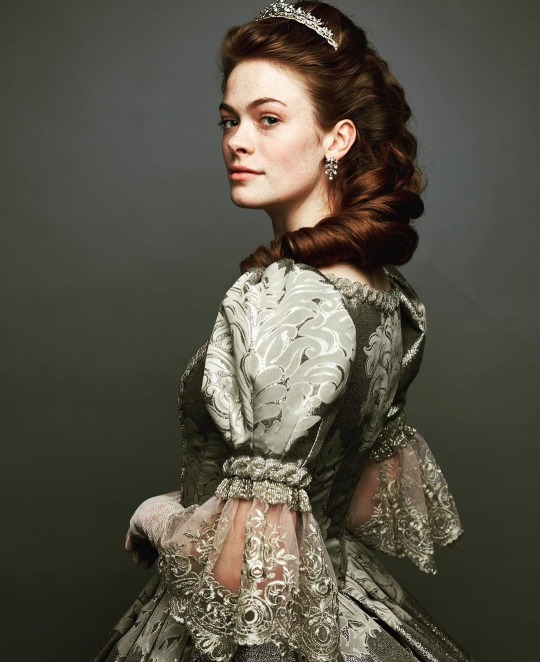
Pauline Rénevier as Helene in Bavaria for the second season of Sisi (2021).
#Sisi#sisi (2009)#costume drama#historical drama#period drama#Pauline Rénevier#Helene in Bavaria#german tv#german series#sisi.rtl
14 notes
·
View notes
Text
the way every s.isi adaption featuring young rudolf has a scene with one of his parents hearing him cry at night has me :)))
#♛ ( ooc. ) mentally i'm in vienna#LISTEN it gets me every time 🥹🥹#yes this is prompted by the first episode of sisi s3#but also the scene in sisi 2009 with franz & rudolf is forever in my heart#genuinely one of the most gut-wrenching scenes to me#the way rudolf tries so hard to hide the tears :)))#the way he doesn’t want anyone to witness :)))#all the emotional damage tbh#also hii gonna try to be here properly soon I promise <3
2 notes
·
View notes
Text
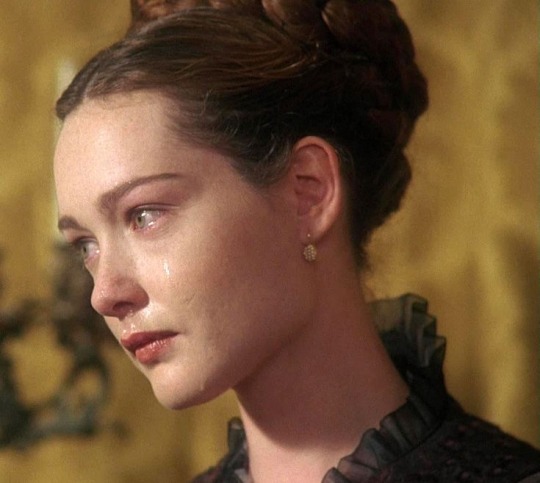
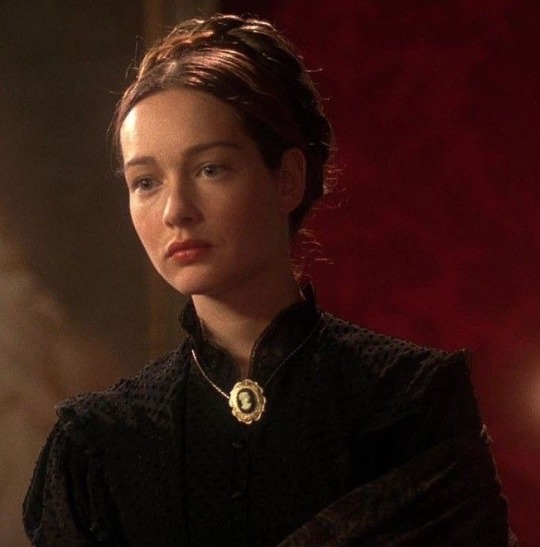




Cristiana Capotondi in Sisi (2009) beats Ornella Muti as my Nesta fancast
89 notes
·
View notes
Photo



This beautiful tiara was first seen in the 2009 season of The Tudors where it was worn by Rebekah Wainwright as Catherine Brandon. It was reused by The White Princess in 2017 on Jodie Comer as Elizabeth of York. It was once again used on Désirée Nosbusch as Archduchess Sophie in the 2021 first season of Sisi.
Costume Credit: f2473627 WardrobeofTime
Follow: Website | Twitter | Facebook | Pinterest | Instagram
#the tudors#rebekah wainwright#jodie comer#the white princess#Desiree Nosbusch#sisi#costume drama#period drama
269 notes
·
View notes
Text


Period drama's dresses tournament: White dresses Round 1- Group B: Hatice sultan, Magnificent century (gifset) vs Elisabeth of Austria, Sissi (1) (gifset)
#period drama dresses tournament#tournament poll#tumblr tournament#polls#fashion poll#hatice sultan#magnificent century#muhtesem yuzyil#elisabeth of austria#elisabeth in bavaria#sisi#sisi 2009#white r1
11 notes
·
View notes
Text

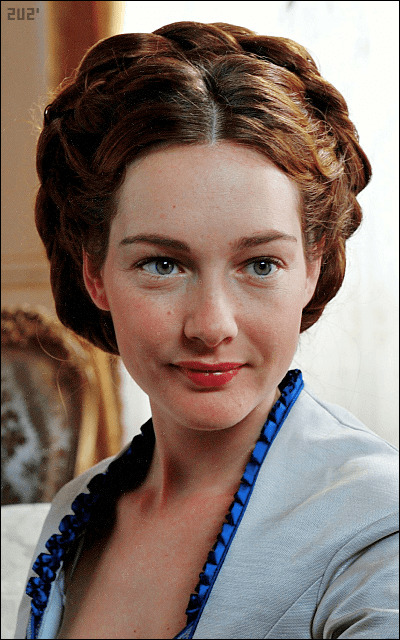

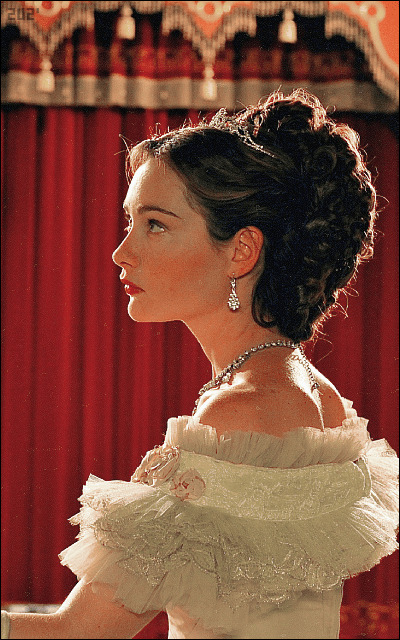


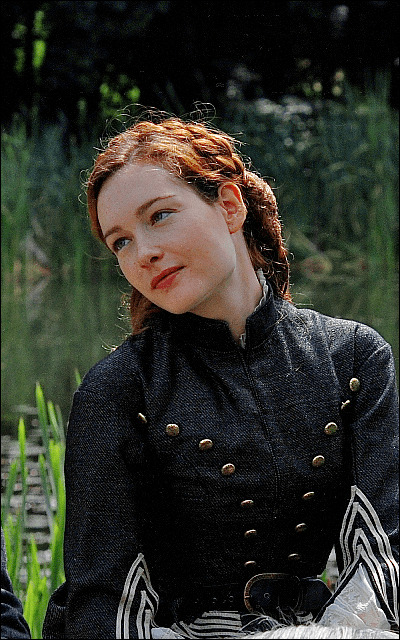

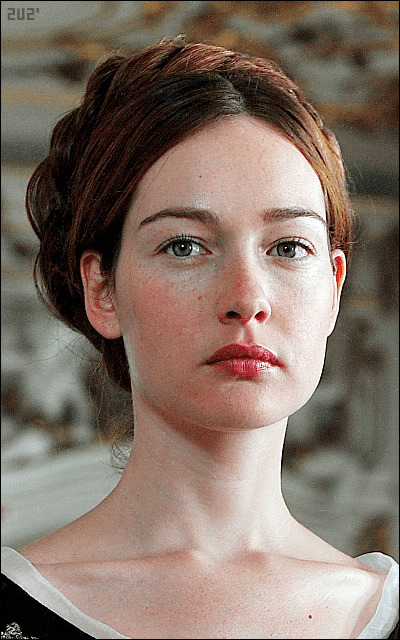
Cristiana Capotondi as Elisabeth of Austria in Sisi (2009) (x9)
32 notes
·
View notes
Text


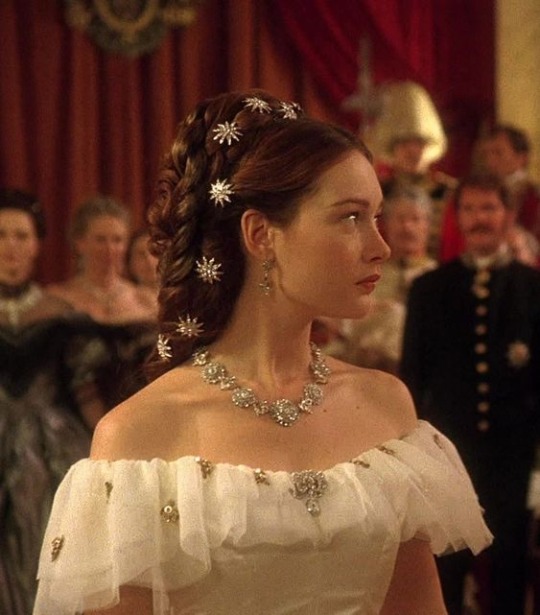
literally she’s so shaera-coded
| cristiana capotondi in “sisi” (2009) |
#greenliesblackheartswip#green lies black hearts#shaera velaryon#hotd oc#house of the dragon#aemond targaryen#aemond x oc#ao3#xxpeppermintxx109#fanfic#original character#hotd#aemond x shaera#aemond targaryen x shaera velaryon#ao3fic#fanfiction
46 notes
·
View notes
Note
What is the most historically accurate film of Sisi you have seen?
Can you rank all of them you have seen from most historically accurate to least?
what one is your favorite?
thank you!
Hello! One of my major goals (?) on this blog is to make an Ultimate Tier List of Sisi Adaptations, but I still haven't been able to. But here is an overview of the media that I've watched so far, ranked for most "accurate" to the least:
Sisi (2009): By far the most historically accurate Sisi portrayal that exists. I've already talked about it a bit the other day, but this mini series covers from Elisabeth's engagement until her coronation as Queen of Hungary, and includes important events such as her daughter's death in 1857, the Italian War of 1859, Elisabeth's illness and departure to Madeira, the abuse her son Rudolf suffered in hands of his tutor and her intervention to stop it, among other things. We even get as a side plot her brother-in-law Maximilian and his ill-fated adventure. It is clear that the writers knew the history they were adapting, and put care in having as much historical moments as posible. Which incidentally is also the series biggest weakness: it's too short for the amount of events it covers. The pacing is too rushed and many of the story lines are not properly developed. It is not entirely accurate either: the writers couldn't (or didn't want to) get away of the romantic myth and put great emphasis in Elisabeth's marriage as a great love story (weirdly this didn't stop them from romanticizing her friendship with Andrássy either). I pity that this wasn't a full series because it had the potential to be a great show.
Elisabeth das musical (1992-): my favorite piece of media about Elisabeth ever. I also already talked about it but for a musical whose argument is that the assassin of Empress Elisabeth is trapped in a loop in the afterlife in which he forever must tell her story while he's judged for his crime this is a surprisingly accurate and nuanced take of her life. While a bit outdated now (the idea that archduchess Sophie was an evil mother-in-law or that Sisi and her father had a close relationship have been disproved for a while, for example), I think this musical actually got her personality, or better, it got that we can't truly know her: she was a complex person, she was full of contradictions, she was human.
Sissi Trilogy (1955-1957): a classic is a classic. A heavily romanticized take on the early life of the empress, these movies are not particularly accurate, but they're fun to watch nonetheless (except the third one. The third one is a bad movie, fight me)
Sisi (2021-): I'm weirdly fond of this show, I'm sorry. Like I know that objectively is a very trashy, poorly written attempt at a historical drama, and yet I can't help but finding it fun to watch. And for all its flaws (which are PLENTY, and I complained a lot about them here), at least it tried to do something different with some of the characters. I vaguely remember someone saying that RTL is like the CW of Germany, so following the comparison I would say that this show is kinda like Reign: a hot mess that you either love to hate, or you learn to love with time.
The Empress (2022-): my deep dislikeness for this show is no secret to my followers. In fact I owe them a review, which I begun but never finished, because every time I enter the doc I'm reminded of how much of a disappointment this series was for me, and I don't want to keep writing (I will eventually I promise it). This series has all the problems of the 2021 Sisi series and none of its redeming qualities. If you go through my livebloging tag you'll find what I disliked, but to put it short: this series is so disconnected of reality that can't be enjoyed as a historical drama, but it is so poorly written that can't be enjoyed as a piece of fiction either. It's just not fun to watch at all.
The King Steps Out (1936): The only time in history that the USA attempted to make a Sisi movie, and yes it ranks even lower than The Empress that's how inaccurate this is. This was an adaptation of an operetta (that would end up being the basis for the first Sissi movie), and other than "emperor is expected to marry his cousin but end ups falling for her sister instead" the story has nothing to do with history. I also just didn't like this movie at all.
Not Sisi Media But Features Sisi As A Character:
Ludwig II (2012): I LOVE Hannah Herzsprung's Elisabeth. She gave us a Sisi we never saw before: the friend. She is Ludwig's friend and wants the best for him but this doesn't stop her from criticizing him; she loves him but also loves her little sister and is FURIOUS when Ludwig dumps Sophie. To me this is one of the most loving takes of her that exists, and for that I adore it.
Ludwig (1973): THE BEST enigmatic and mature Elisabeth, period. Romy is sublime, every one of her scene feels like a master class in acting. I don't rank her over Hannah's Elisabeth because I don't like much the plot they gave her (they turned her friendship with Ludwig into a sort-of-romance and she also mistreats Sophie), but in terms of acting this is by far the best performance.
Mayerling (1936): Elisabeth appears only for one scene played by a woman that looks nothing like her only to give love advice (???) to Mary Vetsera and then leaves. An absolutely boring and forgettable portrayal, I don't know why they even bothered including her (also fyi this movie is bad).
Ludwig II (1955): literally who is this woman. She's Elisabeth in name only, they stripped away everything that made her interesting and turned her into a cardboard cutout romantic interest for Ludwig II (who's straight here LOL). Worst Elisabeth that I've seen so far hands down (btw this movie is also bad minus some scenes).
Special Mention:
L'aigle à deux têtes (1948): This isn't a Sisi movie nor features Sisi at all, but the character of the Queen is clearly inspired in Elisabeth. Here we follow the widow Queen of a fictional kingdom and an anarchist that attempts to kill her but ends up being protected by her. It's the adaptation of a play and it shows: the action happens in closed spaces and it's made up mostly of dialogues. It is a psychological movie (and also an enemies to lovers romance lol), and it may be boring for some since it's mainly just characters talking, but personally I loved it.
#asks#sisi (2009)#elisabeth das musical#sissi trilogy#sisi (2021)#the empress (2022)#the king steps out (1936)#ludwig ii (2012)#ludwig (1973)#mayerling (1936)#ludwig ii (1955)#l'aigle à deux têtes (1948)
50 notes
·
View notes
Text
U.S. President Joe Biden talked about democracy vs. autocracy a lot in his early days in office. This was an attempt to reinvigorate democracy as a source of American soft power. The Russian invasion of Ukraine was an opportunity to drive home the message of this new geopolitical challenge to surmount. The democracy summits were an attempt to build on Biden’s vision, even though they were flawed in their criteria of which countries to include. Nevertheless, the third democracy summit in Seoul has drowned in the fog of the Israel-Hamas war. The administration’s management of the crisis has acted as a wrecking ball on the framework it was trying to build. While the United States has repeatedly blocked attempts at a permanent cease-fire, China is appealing to the global south by acknowledging the Palestinian right to armed resistance at the International Court of Justice. Allowing the conflict to drag on will keep discrediting the United States, elevate the standing of China and Russia, and undermine the prospects of democracy globally. And current events in Egypt, a historic strategic partner to the United States, showcase the consequences of this inertia.
An initial commitment to democracy in the Middle East came from then-President George W. Bush. In 2005, pressure from Bush’s administration resulted in Egypt’s first competitive presidential election, marking a significant shift in its political landscape. (Before that date, presidents renewed their mandate through referenda.) This first election gave a new life to the first movement that defied then-President Hosni Mubarak’s grip over power, Kifaya (Arabic for “enough”). A new generation became politically engaged, and, according to V-Dem datasets, there was a rise in participation in independent political associations. This new generation led Egypt’s revolution in 2011.
Barack Obama’s speech at Cairo University in 2009 was a rare moment when an American president visiting an Arab country was warmly welcomed. He promised a “new beginning” with the Muslim world after the shocking invasion of Iraq by Bush’s administration. The peak alignment with America’s calls for democracy happened during the Arab Spring of 2011, when the youth in Tahrir Square agitated to overthrow Mubarak with Obama’s support.
When Abdel Fattah al-Sisi took power in 2014, he identified Egypt’s evolving civil society, along with the Muslim Brotherhood, as threats he needed to take down in order to avoid a fate like Mubarak’s. Sisi’s regime has been characterized by a crackdown on dissent, with civil society actors who align with Western values of human rights and democracy labeled as traitors. The United States has come under continuous attack by state-sponsored media as a sponsor of chaos in the region; this propaganda in turn has worked to discredit the Western model of democracy. Meanwhile, former U.S. President Donald Trump’s favorite dictator received little pushback from an administration that did not have democracy on its agenda.
Over the same period, relations with Russia and China have grown stronger. While Mubarak maintained a good relationship with Moscow, Russia’s presence in Egypt mainly came through grain exports and tourism. Since Sisi took power in 2014, Cairo’s pivot toward Moscow was highlighted by the agreement in 2015 for Rosatom to build the first nuclear power plant on Egyptian soil—one of Russia’s most critical strategic wins in the region. Egypt’s reaction to Russia’s invasion of Ukraine involved a provisional agreement to supply rockets to Russia and refusing to block its airspace to Russian fighter jets. Sisi justified this stance when he met American House Intelligence Committee leaders in Cairo: “When the U.S. conditions some of its arms sales and shipments to Egypt, what do you really want me to do?” (Jim Himes, the committee’s ranking member, recounted this interaction with Sisi in an interview with CNN.) The U.S. has, since Obama, been putting conditions to uphold human rights on its aid to Egypt, which is the second-largest recipient of U.S. military assistance after Israel. Although blocks on aid usually involve a small proportion of the $1.3 billion sent annually, China and Russia offer arms deals with no such strings attached.
Cairo, too, has been moving closer to Beijing over the past decade, with Chinese investments increasing by more than 317 percent from 2017 to 2022. Because of the growing Chinese maritime presence in Egyptian ports, Egypt anticipates substantial Chinese investments in the Suez Canal region. Besides rapidly growing trade with China, Egypt’s government has had its state media adopt a Chinese propaganda narrative, organized bilateral leadership programs with the Chinese Communist Party (CCP), and allowed for Chinese expansion in the telecommunications sector and cyberspace. Only faint liberal voices within the minimal independent media space challenged the Egyptian official narrative that has championed China as a model of autocratic economic development.
Enclaves of activists and civil society leaders in Egypt and abroad have continued to challenge the Sisi regime, primarily through social media, and to support all those oppressed and imprisoned by him. Their pressures began to yield some results after Biden took office. His administration extended a show of support by highlighting human rights abuses in Department of State reports and withholding a small portion of military aid. Although the United States refused to increase the amount of withheld aid as called for by international human rights organizations, this helped ease some pressure on Egyptian activists. In 2022, and ahead of COP27 in Sharm El-Sheikh, and in an attempt to improve its image in response to the mounting U.S. pressure, Egypt released a considerable number of political prisoners, the issued a national human rights strategy, and establishmed a national dialogue between the regime and the opposition figures who remained inside Egypt. The results of these concessions were minimal, and some, like the human rights strategy and the dialogue, were merely cosmetic maneuvers. Nevertheless, they all happened after incoming U.S. Secretary of State Antony Blinken openly criticized the arrest of staffers from the Egyptian Initiative for Personal Rights (EIPR) and Biden excluded Egypt from the democracy summits. Egyptian activists understood that any wins, however limited, could be achieved through U.S. support. This was particularly evident in campaigns to release high-profile prisoners like Alaa Abdel Fattah. The war in Gaza has severely compromised this premise.
The Biden administration’s backing of Israel and the repeated American vetoes used in the U.N. Security Council to prevent a permanent cease-fire have slashed the United States’ popularity in Egypt to 9 percent, compared with 46 percent for China, as shown in a survey by the Washington Institute for Near East Policy. The acute rise in anti-American sentiment is not the only result of what the public perceives as hypocrisy and double standards in America’s approach to the conflict. As shown by the survey, a more alarming consequence is the prevalence of distrust in the Western model of democracy and human rights, increasingly perceived as mere rhetorical tools deployed by the United States when human rights align with U.S. interest. Revealing the extent to which this view has been adopted by the public, in its latest release the most famous Egyptian rock band, Cairokee, sang about a double-faced America that doesn’t value Palestinian lives as opposed to those of “white angels.”
What about Europe? Can it pick up America’s slack? Europe once supported democracy and human rights in Egypt, as evidenced by the resolution issued by the European Parliament in 2022 urging EU member states to support a monitoring and reporting mechanism on grave human rights violations in Egypt. But once the war in Gaza began, European Commission President Ursula von der Leyen pledged to support Sisi through financial aid packages to mitigate the refugee influx expected from Gaza—and to prevent new waves of migration to Europe.
Arab democracy and human rights advocates made it clear that they parted ways with the Western stance of support for Israel and stood firmly in solidarity with the Palestinians. As a result, human rights organizations have risked support from their partners in the West, and many have become even more isolated in their struggle under repressive regimes. For instance, Germany recently withheld funding for the anti-trafficking program of the Centre for Egyptian Women’s Legal Assistance (CEWLA) as a punishment to its head of the board of trustees, the award-winning human rights defender Azza Soliman, for signing a statement calling for the end of the war in Gaza and supporting the boycotting of the occupation. In solidarity, EIPR stopped all cooperation with the German government. The only winners from the weakening of civil rights organizations in Egypt are the authoritarians.
China and Russia have positioned themselves very well to capitalize on these developments. They did not rely solely on their official statements and positions in support of the ceasefire in the U.N. Security Council, which has already enhanced their image considerably with the Arab public, as detected by the Washington Institute survey. The China in Arabic account on the X platform exemplifies how China is seizing the opportunity to spread anti-American rhetoric. The account spreads pro-Chinese and anti-Western propaganda in Arabic to more than 580,000 followers.
Moscow is already cashing in on these gains by hosting Palestinian factions, including Hamas, for reconciliation talks. China sees in the conflict an opportunity to expand its geopolitical role in the region while the United States is bogged down with Iranian proxies in Syria, Iraq, and the Red Sea, and it reaps political wins from the Houthi Red Sea attacks, which spare Chinese vessels and crew members. But those who have gained the most from the anti-American sentiment are the autocratic regimes of the region.
Sisi is relieved to have secured his third presidential term through a sham election. He blocked his main rival, Ahmed Tantawi, from running, and sentenced him after the election to a one-year suspended prison sentence and a ban from running in parliamentary elections for five years. Instead of calling out such violations, Western pressures were focused on mitigating the effects of the war and having an active Egyptian role in the day-after scenario despite its internal vulnerabilities. Nationalist and religious rhetoric has prevailed, even among activists on social media.
The United States needs to move fast to restore its image globally. This requires promptly ending the devastating war in Gaza and adopting a fair and balanced approach to the Middle East conflict. Promoting democracy should be repositioned at the center of American foreign policy to counter the global rise in authoritarianism championed by China and Russia. In parallel, measures should be taken to nudge autocratic allies in the region toward political reform. Economic and trade incentives should be linked to structural economic and political reforms. Judicial reform and unequivocal implementation of the rule of law should be mandated to guarantee the long-term efficacy of economic aid packages, as well as to extend solid support to freedom fighters unwilling to relinquish their struggles for democracy.
Pundits have criticized the Biden administration’s autocracy-vs.-democracy framework as an impractical approach to the geopolitical contest with China. Yet democratization and upholding human rights remain essential soft powers. Autocrats like Sisi already prefer aligning with China, who absolve them from any commitment to human rights. With support for China growing, displays of hard power such as military showdowns and trade wars will become the main arenas for competition.
4 notes
·
View notes
Note
Sorry if you were asked this question, but which series did you like more - Sisi or The Empress?
I haven't received this question yet...I think? I'm honestly not sure. Both played a lot with the material and basically turned it into fanfiction of what we know happened.
I mean Sisi is also already on its fourth season production cycle while The Empress is only just now wrapping up filming its second season, so comparing them is really difficult when you have three times as many episodes for one series. I think I enjoy Dominique's Sisi a bit more to Devrim's while I like Philip's Franz over Jannik's, but this isn't on the actors but the stories written for them and how they are directed to play them.
But overall I recommend watching Sisi (2009) over both of them.
4 notes
·
View notes